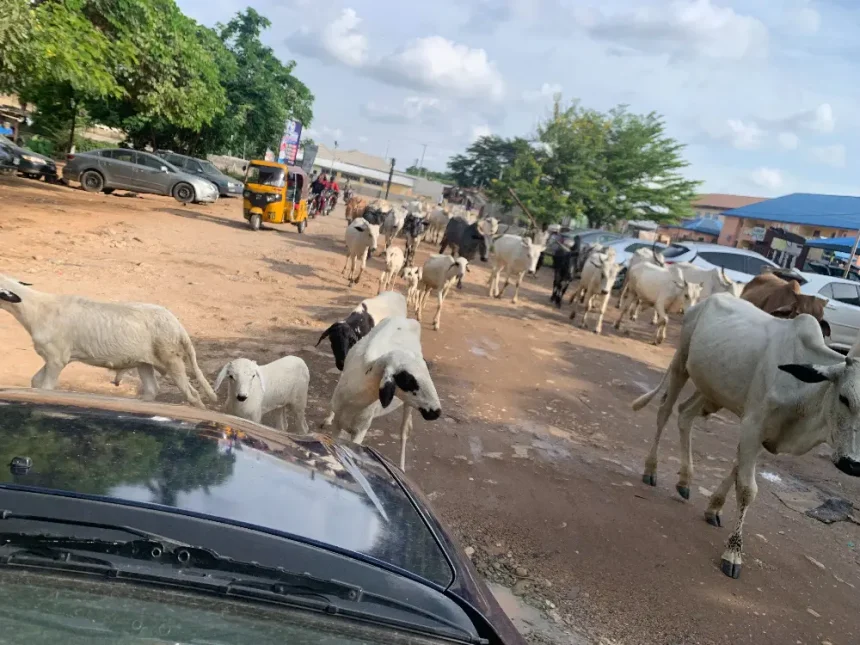It has been a year since the Minister of the Federal Capital Territory (FCT), Nyesom Wike, declared his intent to end open grazing in Abuja, but the situation appears largely unchanged.
The promise, made in August 2023 shortly after he assumed office, raised hopes among residents who believed the menace of roaming cattle in the city would soon become a thing of the past.
“We will consult with the herdsmen to see how we will stop [open grazing] because we cannot allow cows inside the city,” Wike said at the time. Months later, in March 2024, during a meeting with Belgian Ambassador to Nigeria, Daniel Bertrand, Wike doubled down on his commitment to this policy, reiterating that open grazing had no place in the nation’s capital.
Yet, as the months have rolled by, the reality on the ground tells a different story. Cows are still a common sight in the city center, moving unbothered through roads and neighborhoods.
In August 2024, during working hours, a herd of cattle was seen grazing near the Defence Headquarters, blocking traffic and leaving residents frustrated. A month later, another herd was spotted close to the newly constructed Vice President’s residence, just opposite the Office of the Secretary to the Government of the Federation.
“The minister is slowly realizing how complicated the politics of cattle rearing is in Nigeria,” says Shefiu Adio, a taxi driver in Abuja. He shared his frustrations after cows blocked the road near a traffic light close to the Defence Headquarters.

Adio explained how the issue has become deeply politicized, particularly in Abuja, where a directive banning open grazing is often interpreted as an attack on northern herders. “In Rivers State, that kind of order would have been obeyed without question. But here in Abuja, seen as a neutral ground for all Nigerians, such a directive is viewed as targeting northerners,” Adio remarked.
His passengers, stuck in traffic caused by the cows, expressed similar irritation. One passenger referred to the cattle sarcastically as “government children,” a phrase many Abuja residents now use to describe the seeming immunity of roaming cows and their herders.
Beyond the streets of the city center, open grazing is still visible in multiple locations. From the serene neighborhoods of Asokoro Extension and Guzape to the busy Airport Road, herders continue to graze their livestock, often right along major highways.
For many herders, displacement caused by Abuja’s rapid urban development has left them with few alternatives. “Urbanization is not helping matters,” says Umar Ubandawaki, a cattle trader at Deidei Market. “Many Fulani communities have been displaced, and areas that used to provide grass for our cows now have estates on them.”
Ubandawaki believes that threats alone won’t work. “The minister needs to provide practical solutions. Herders need alternatives, not just warnings,” he said, referencing areas like Katampe and Sabo Lugbe, where herder settlements have been taken over by developers.
Some residents are optimistic that the recent creation of the Ministry of Livestock could pave the way for a more sustainable solution. Still, for now, Abuja residents must continue to navigate their way around grazing cattle and the frustrations they bring.
This is not the first time Wike’s directives have struggled to gain traction. Earlier this year, he ordered the removal of beggars from the city. While some initial action was taken, many beggars have since returned to the streets, leaving residents questioning whether the minister’s policies can bring lasting change.
For now, the promise of an Abuja free from roaming cattle remains unfulfilled, and the capital’s residents are left hoping that action will eventually match the minister’s words.



